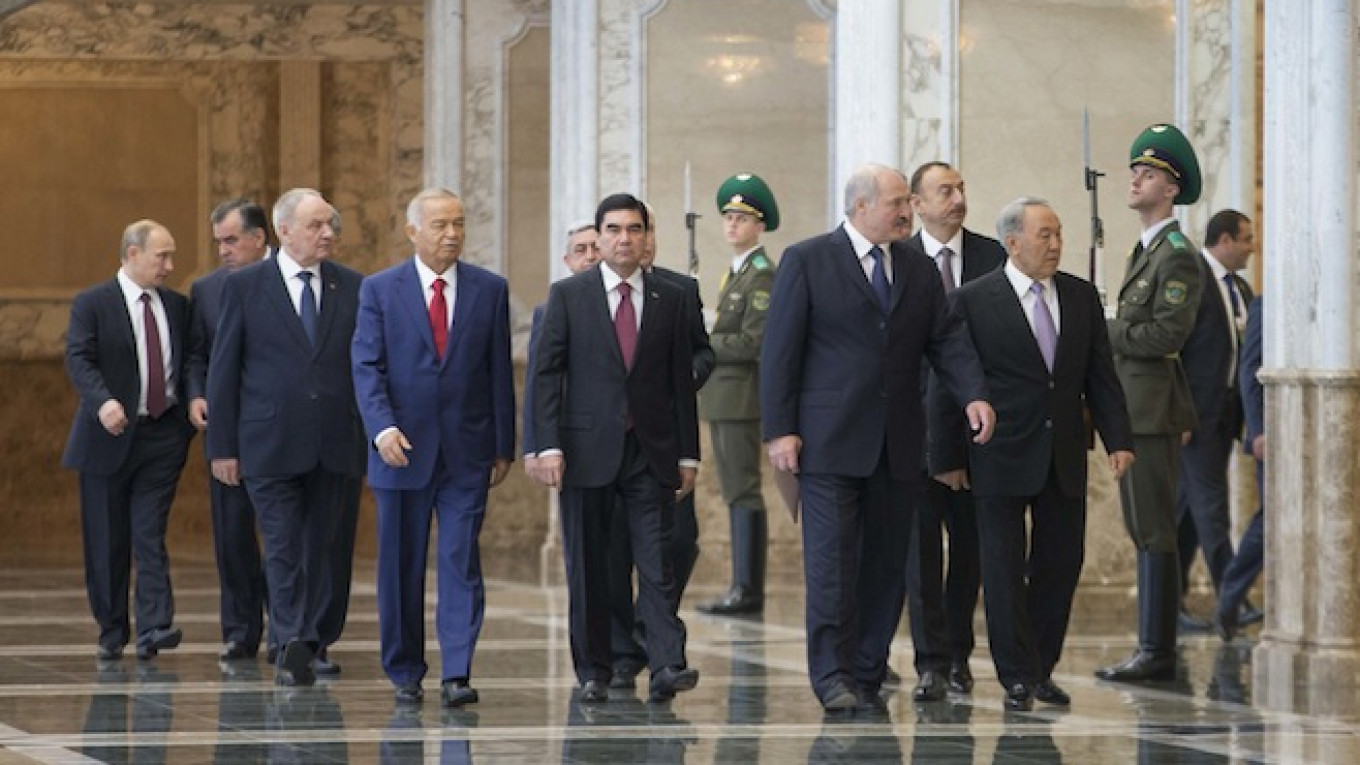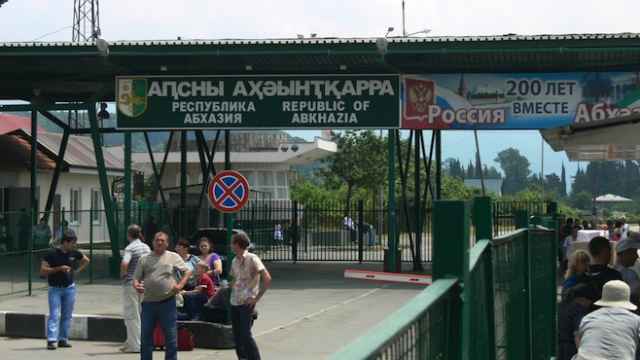Originally published by EurasiaNet.org
Armenia has finalized its accession to the Russia-led Eurasian Economic Union, an intended regional counterweight to the European Union. But while Armenian and Russian officials focus on future prosperity, some Armenian observers believe that membership in the bloc could exacerbate Armenia's security challenges.
During an Oct. 10 meeting of the Supreme Eurasian Economic Council held in Minsk, Armenian President Serzh Sargsyan confirmed that his country would be formally admitted to the Eurasian Economic Union (EEU) when it launches on Jan. 1, 2015. The Armenian government approved the draft text of the accession agreement in early October, Armenian media reported. The EEU will be an outgrowth of the existing customs union among Russia, Belarus and Kazakhstan.
Armenian political analysts greeted the accession announcement with mixed feelings, in part because the final text of the pact has not been subjected to public scrutiny. There is particular concern about the pact's ramifications for Armenia's relationship with the Nagorno-Karabakh territory, an enclave inhabited by ethnic Armenians who aspire to gain international recognition of their de-facto independence from Azerbaijan.
A draft released earlier this year implied that a customs post would be established between Armenia and Karabakh. Local economists say that such an economic barrier would paralyze Karabakh's economy since the territory depends on Armenia as its primary market for its limited selection of exports.
Beyond the potential economic ramifications, many Armenians would see the establishment of a customs regime as tantamount to the cutting of cultural ties with Karabakh, an act that could leave the territory — and, consequently, Armenia itself — vulnerable to possible Azerbaijani aggression.
"Currently, we have no expectations with regard to security. We see only threats," commented Aghasi Yenokian, director of the Armenian Center for Political and International Studies, a Yerevan-based think tank.
Over the past year, Armenian officials have said repeatedly that Armenia's membership in the Eurasian Economic Union takes into account security guarantees for both Armenia and Karabakh, but no proof of this has been offered.
As a result, uncertainty continues to swirl around the future of the trade relationship between Armenia and Karabakh. Two of the EEU's three members, Belarus and Kazakhstan, are on record as categorically opposed to allowing Armenia to share the bloc's trade advantages with Karabakh, which none of the members recognize as a country independent from Azerbaijan.
In Minsk, however, Kazakh President Nursultan Nazarbayev stated that a "compromise" had been reached "on a delicate question within the borders by which Armenia will be joined to our union," the TASS news agency reported.
Details were not immediately available.
Members of the ruling Republican Party of Armenia contacted by EurasiaNet.org declined to comment on the challenges that EEU membership could pose for Armenia's ties with Karabakh.
"There is a very complicated period awaiting us, taking into account the somewhat unfriendly attitude of the EEU to Armenia, particularly on the part of Nazarbayev and [Belarussian President Alexander] Lukashenko," commented Styopa Safarian, director of the Armenian Institute of International and Security Affairs.
President Sargsyan, a native of Karabakh, does not, however, appear to share such worries. Congratulating Russian President Vladimir Putin on his Oct. 7 birthday, Sargsyan stated that Putin's "consistent efforts" for a peaceful resolution of the 26-year Karabakh conflict with Azerbaijan, as well as his support for Armenia's EEU membership, "deserve the deepest appreciation.
Opposition parties have also adopted conciliatory stances toward Russia, observers note. This fact leaves some analysts glum. To them, it means the political class is unlikely to push hard to promote Armenia's interests within the EEU.
"The opposition and the authorities do their best not to make the Kremlin angry," said Safarian, an analyst and former member of the opposition Heritage Party. "This situation is not encouraging at all."
A Message from The Moscow Times:
Dear readers,
We are facing unprecedented challenges. Russia's Prosecutor General's Office has designated The Moscow Times as an "undesirable" organization, criminalizing our work and putting our staff at risk of prosecution. This follows our earlier unjust labeling as a "foreign agent."
These actions are direct attempts to silence independent journalism in Russia. The authorities claim our work "discredits the decisions of the Russian leadership." We see things differently: we strive to provide accurate, unbiased reporting on Russia.
We, the journalists of The Moscow Times, refuse to be silenced. But to continue our work, we need your help.
Your support, no matter how small, makes a world of difference. If you can, please support us monthly starting from just $2. It's quick to set up, and every contribution makes a significant impact.
By supporting The Moscow Times, you're defending open, independent journalism in the face of repression. Thank you for standing with us.
Remind me later.






